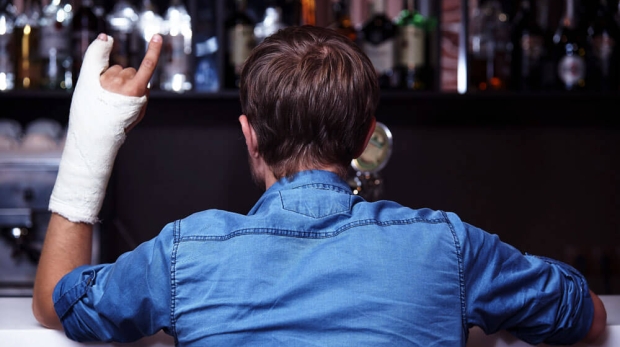How the Changing Lockout Laws in Sydney Will Affect Insurance
Posted on January 29, 2020 | by | Posted in Uncategorized

January 14, 2020 marked the day the lockout laws were lifted from Sydney CBD entertainment precinct. Aside from Kings Cross which is still locked out, the rest of the city will finally revert back to its original liquor laws. This means that patrons are allowed to enter venues past the 1:30 a.m. lockout time, with drinks served after 3 a.m. (with the correct license). Back in 2014, the lockout laws were introduced by the government of New South Wales back in hopes of controlling alcohol-infused violence after two fatal attacks happened within the area.
Critics say that revellers started migrating south towards Newton and brought potential trouble along with them. This has left CBD’s once vibrant nightlife into a dry, boring state. However, after almost 6 six years since the laws were introduced, the NSW government has decided to lift it up, much to the delight of both tourists and locals (with the exception of emergency service staff and medical professionals). The question is, will the changing of the lockout laws impact insurance underwriting in affected areas?
Director of Matrix Insurance Group Oliver Whittingham talked to Insurance Business and explained that the multi-sided nature of hospital insurance demonstrates the forthcoming insurance changes for venues in Sydney that were once locked out. He said “Hospitality insurance is a varied field – you have everything from cafes and caterers all the way up to bars and nightclubs,” said Whittingham. “It’s never too much of an issue getting cover for restaurants and cafes – where the issues are regarding insurance is within the late-night leisure zone.”
There are a couple of attributes that are closely inspected when underwriting an insurance risk for nightclubs and bars. Some of these factors include opening hours of the establishment, complete history of abiding to relevant laws, strength of security, and employees undergoing training for Responsible Service of Alcohol (RSA). It is important to fully understand your options when it comes to nightclub and bar insurance throughout Australia.
Whittingham believes that underwriters for hospitality insurance will do their due diligence in ensuring the respectability of the establishment, even going as far as scoping out the venue on different social media platforms. He said “Underwriters will look at it on a case-to-case basis. They will even look at the square meterage of the dance floor, for example”.
Meanwhile, Mark Polglase, chief underwriting officer at Blue Zebra Insurance’s SME division, discussed with Insurance Business that questions about the establishment will be raised first before acquiring a broader picture of the venue. He said, “The more information you can gain from these questions, the more confident you are in then providing a quote.”
According to Polglase, the CBD has undergone significant improvements in regards to responsible alcohol service and consumption, thus warranting the lift of the lockout laws. With this, people can confidently assume that establishments are doing something right which could benefit insurance underwriting in a positive manner. He stated “Clearly there has been a reverse and there is now a confidence there that the pattern or the cycle of activity has been broken. I guess time will tell if the bar has been raised, pardon the pun, in terms of making sure that these venues and the environments around them are now much safer.”
Now that the lockout laws have been lifted, does that mean that we’ll see a dramatic change in how insurance is underwritten for venues and business within the area? Not necessarily. It’s hard to provide a definitive answer because of the layered nature of hospitality insurance and the contradictory consequences of the laws.
Despite the changing lockout laws, the attributes of establishments and businesses in question are likely to remain the same and this holds true for bars and late night restaurants.The capacity of the establishment, the installation of CCTV cameras, having contracted security, and adequately trained staff will stay the same; all of which are closely inspected when underwriting hospitality insurance.
While patrons are more likely to enter venues at later hours with increased alcohol levels, businesses should remain steadfast and implement contingency plans to ensure their operations stay unaffected. As safety measures continue to improve in Sydney’s CBD entertainment precinct, it should translate into more favourable insurance writing. Only time will if lifting the lockout laws will correlate to reduced drunk violence, which is a huge deal in terms of how hospitality insurance is underwritten for businesses within the area.
Request a FREE Quote




